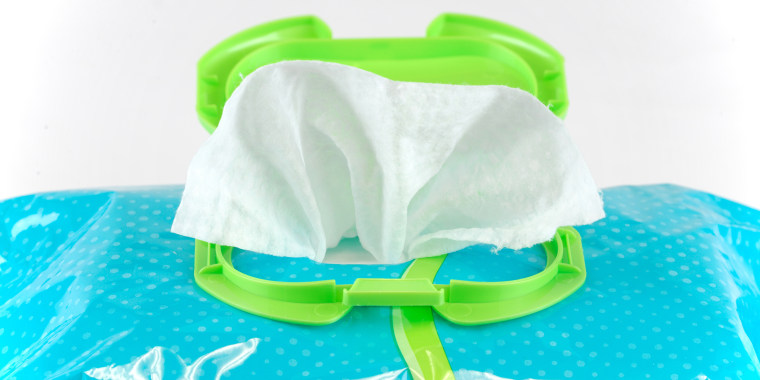When plumber Rex Kinney gets a call about wet wipes, he knows the job is going to take a while.
Kinney, a master plumber with Jersey Plumbing Service in Basking Ridge, New Jersey, has spent countless hours dredging up wet wipes from blocked sewers. He and his crew often spend three or four hours snaking one sewer, using a cable to drag up soggy clumps of wipes, pulling the wipes off the end and then sticking the cable back down into the muck.
“It's a fair amount of work and it's not too pretty looking,” Kinney told TODAY.
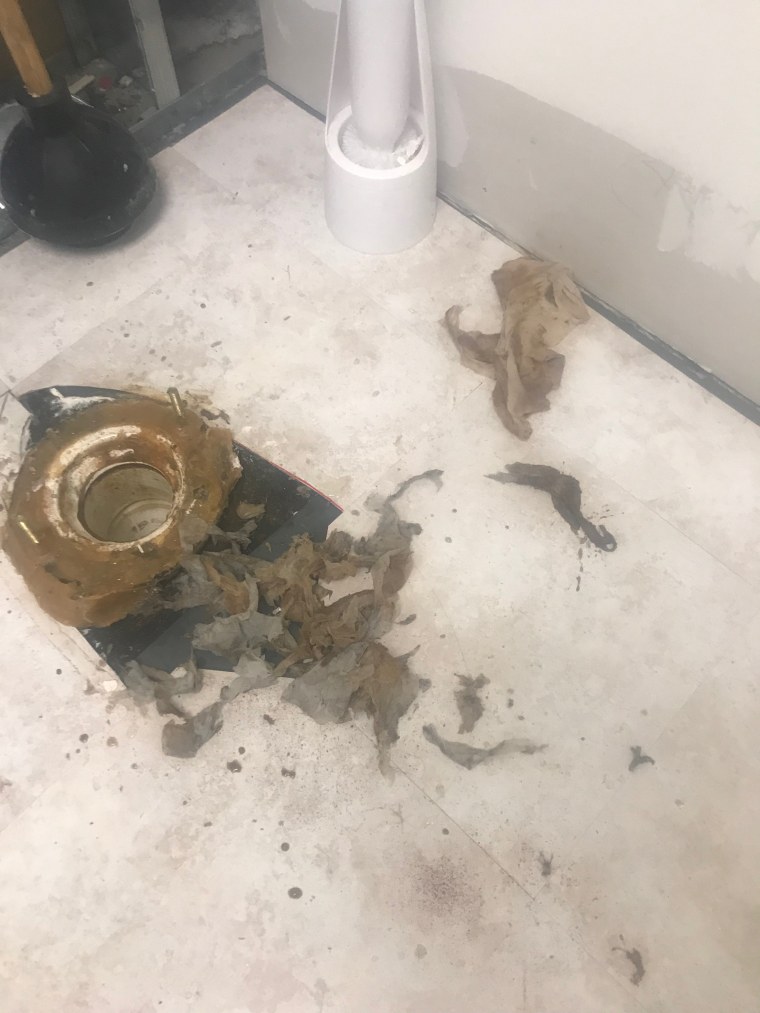
These days, wet wipes are everywhere, from baby wipes to cleaning wipes to pre-moistened towelettes meant for bathroom use.
Sales of personal wipes reached $2.2 billion in North America in 2015, according to the market research group Euromonitor International, and the market continues to grow.
Many wipes on the market are specifically labeled as non-flushable, while others claim to be “flushable” or “septic safe.”
People often flush both kinds, so it’s hard to say how many of the wipes Kinney pulls out of the sewers are actually the ones advertised as “flushable.”
But in Kinney’s eyes, wipes don’t belong in the toilet at all, no matter what the label says. He says that while so-called “flushable” wipes might flush easily, they can still cause issues down the line.
“People flush them down the toilet and they go down the drain no problem, but usually when they hit ... a 45-degree elbow within the homeowner’s plumbing pipes going out to the street, that's when they just start congregating,” Kinney told TODAY. “And then over months, over time, they're not being drawn out into the street, and eventually, boom, they shut the sewer. They completely block the sewer and then people get a backup and they call a plumber.”
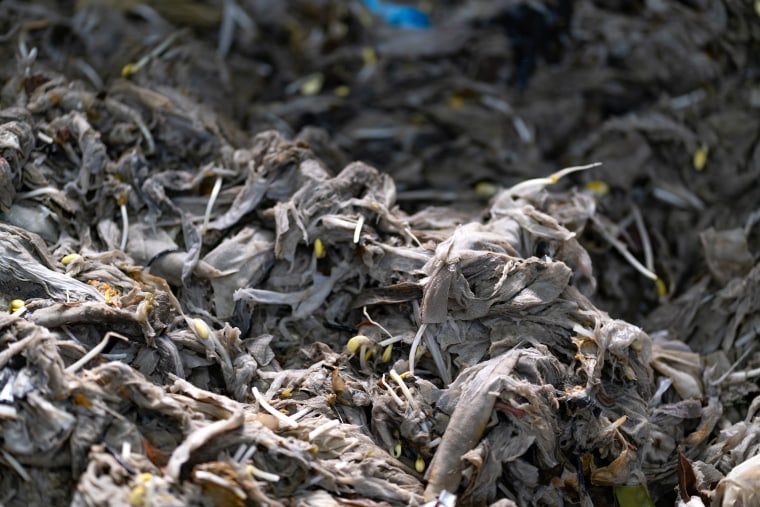
Besides causing clogs, wipes can actually damage wastewater equipment.
“They grab the impellers inside of the pump, and the pumps burn out,” Kinney said.
In recent years, wastewater treatment officials around the country have been begging people to stop flushing wet wipes, even if manufacturers say it’s safe.
“Even wipes labeled as ‘flushable’ can lead to toilet and pipe blockages,” the Sanitation Districts of Los Angeles County said in a recent tweet.
Charleston Water in South Carolina also revealed some of the yucky consequences of flushing wipes (though it’s impossible to say for sure how many of the wipes in these photos were marketed as flushable).
Amid all the gross photos of wipes being dredged up from drains — not to mention the giant “fatbergs” that have been discovered in sewer systems worldwide — wipes manufacturers have been fighting back, arguing that their flushable wipes are not part of the problem.
The Association of the Nonwoven Fabrics Industry, or INDA, has been leading the charge on this front. INDA is a global trade association whose members include some of the biggest manufacturers of flushable wipes, including Procter & Gamble, Johnson & Johnson and Kimberly-Clark.
Last year, INDA released a new set of guidelines (called “GD4”) outlining a seven-part test that wipes must pass to be considered flushable. Dave Rousse, the president of INDA, says wipes that pass this test don’t pose a risk to sewage systems.
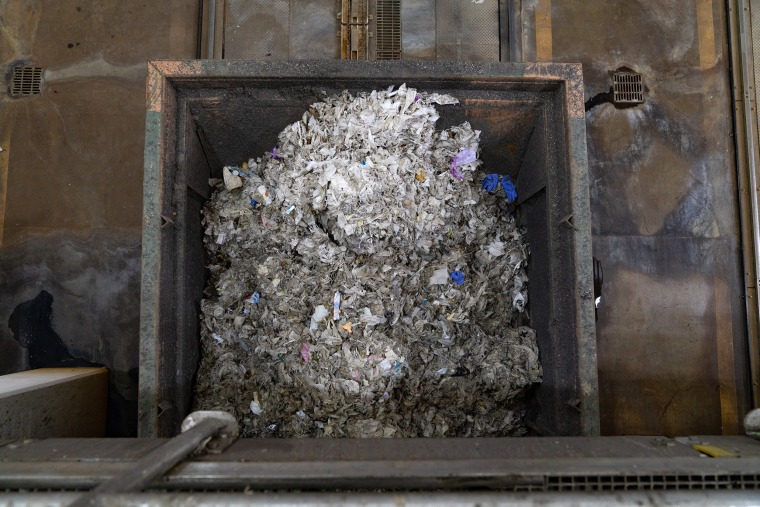
“If every wipe flushed were a GD4-compliant wipe, then there would be no problem in wastewater systems caused by wipes," Rousse told TODAY. "Nobody has ever at any time been able to attribute any damage or any problem in a wastewater system to a flushable wipe."
Rousse argues that flushable wipes are often unfairly blamed for the problems caused when people flush non-flushable kinds, such as baby wipes, disinfecting wipes and makeup-removing wipes.
“Flushable wipes passing GD4 are incapable of causing any problem because they lose their strength so quickly and disintegrate passing through the wastewater treatment system,” he said.
However, there’s a debate over whether the GD4 test is the most effective way to test flushability. Some argue the test isn’t rigorous enough, and doesn’t truly reflect what happens when a flushable wipe passes through the sewer system.
Mikelle Adgate, a senior advisor with the New York City Department of Environment Protection, says companies should adhere to a different set of flushability guidelines developed by the International Water Services Flushability Group (IWSFG).
The IWSFG test “was put together by a coalition of wastewater utilities where we can better replicate the real-world conditions that happen during a wastewater treatment process,” she told TODAY.
Rousse maintains that his organization's GD4 test is more effective. He argues that the IWSFG test was “designed to fail” all flushable wipes, and points out that even some brands of toilet paper don’t pass it.
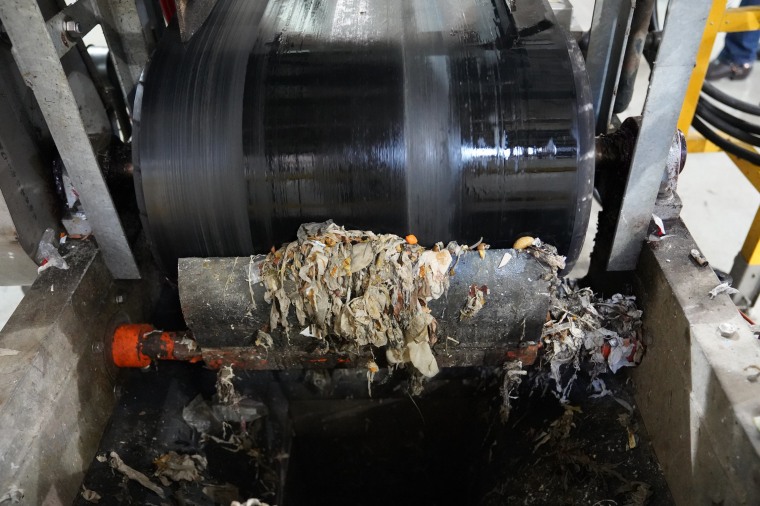
Regardless of which flushability test is best, wipes manufacturers aren’t legally required to pass any test to call their wipes “flushable,” says Brianne Nakamura, senior manager of technical programs at the Water Environment Federation, a trade group that represents water quality professionals.
“There’s not a regulating body that actually looks at these products,” she told TODAY Home. “You can’t say anything is ‘certified flushable’ or anything like that.”
But Rousse argues that wipes manufacturers can be trusted to adhere to flushability guidelines because they know consumers expect them to be honest.
“It’s the invisible hand of integrity,” he said. “These are brands that have a bond of trust between themselves and the consumers, and these brands, the brand owners, they don’t want that bond of trust broken … That is a far more effective policing than any kind of auditing or testing.”
Not all “flushable” wipes are created equal. Some have been shown to break down better than others.
“Our flushable wipes begin to lose strength the moment it touches the water,” Terry Balluck, a spokesperson for Kimberly-Clark, manufacturer of Scott and Cottonelle wipes, told TODAY Home in an email. “And it loses 75% of its strength in a residential drain line within 30 minutes of flushing — before it reaches the municipal sewer system.”
A 2013 test by Consumer Reports did find that both Scott and Cottonelle flushable wipes “disintegrated easily” after being soaked in water overnight.
“We appreciate the issues faced by wastewater — but we know through extensive sewer collection studies that flushable wipes are not the problem,” Balluck said.
However, others say that even some wipes marketed as biodegradable can still cause issues because they might not disintegrate quickly enough, or might not break down all the way.
“When you’re testing in a municipality like New York City, 8 million people, millions of tourists every year … even if (a biodegradable wipe) broke down by 50 percent but you have 4 million people flushing that product, that is still a problem for us,” Adgate said.
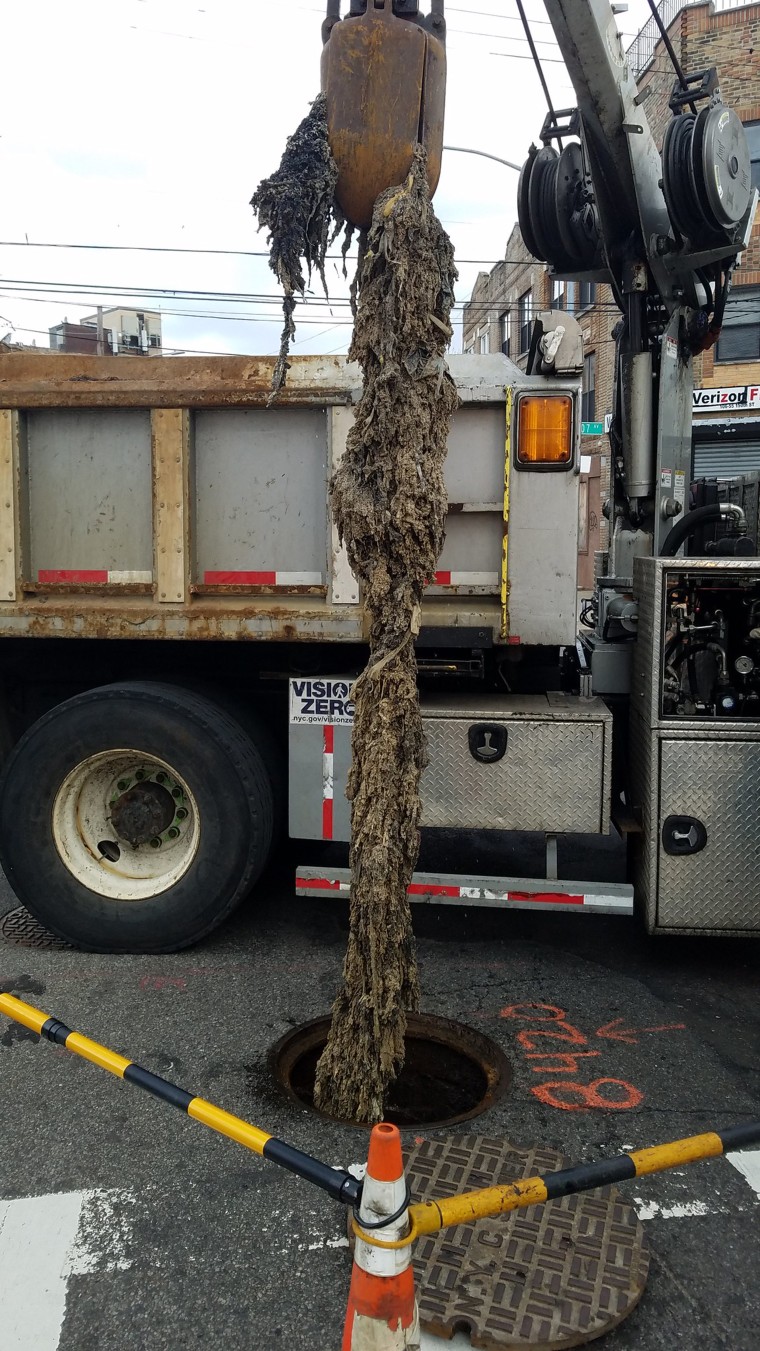
When it comes to research on flushable wipes, the results are mixed. Wipes manufacturers often cite a 2016 study that analyzed the number of wet wipes, "flushable" or otherwise, that flowed into a wastewater treatment facility in New York City in one day.
According to that study, only between about 1% and 4% of the wipes found were the "flushable" kind. The rest were non-flushable varieties like baby wipes, facial wipes and cleansing wipes.
However, the NYC Department of Environmental Protection says this study doesn’t give an accurate picture of how “flushable” wipes affect the wastewater system.
“Almost as soon as the results came in, it was clear that there were serious flaws,” Adgate said, including the fact that researchers used too small of a sample size, and conducted the test during weather conditions that may have skewed the results.
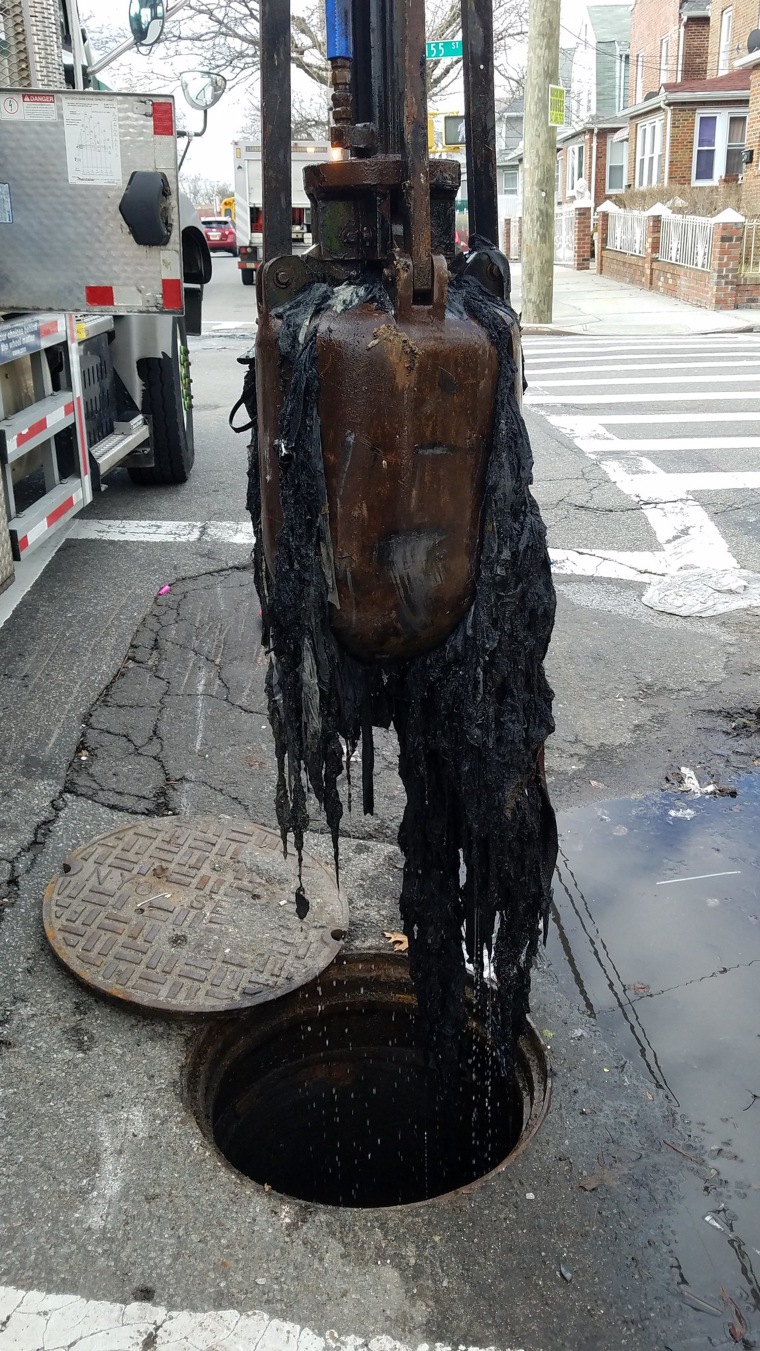
She stands by a more recent study from the NYC DEP, which tested 28 wipes from leading brands using flushability guidelines from the IWSFG. Not a single flushable wipe passed that test.
Another study released this month had similar results. Researchers at Ryerson University in Ontario, Canada, tested 23 “flushable” wipes and found that only two of the wipes even partially disintegrated, and none of them fully broke down. (Rousse criticized the methodology of the Ryerson report and said “it was very disappointing to see them try to attribute any level of competence to that study.”)
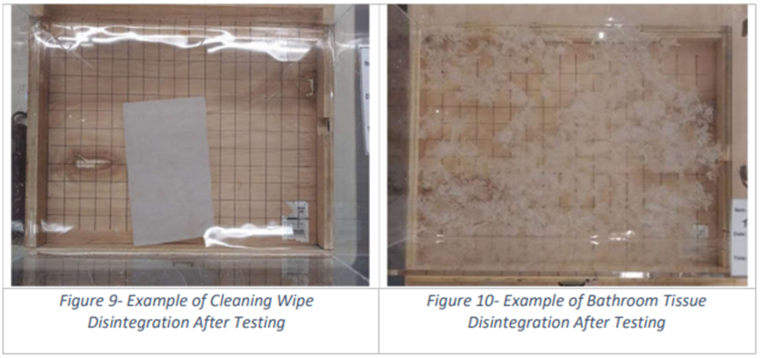
The debate over flushable wipes is playing out in legal battles around the country. In December, Procter & Gamble settled a class action lawsuit that accused the company of falsely marketing its Charmin Freshmates flushable wipes as “safe for sewer and septic systems.” The company maintains that its flushable wipes are safe to flush.
Other lawsuits haven’t been successful. In 2017, the city of Perry, Iowa, dropped a class action suit against six leading wipes manufacturers after the city couldn’t prove that flushable wipes had caused clogs in its wastewater treatment system.
These are just two of the many lawsuits that have sprung up in recent years and chances are, the flushable wipes debate probably won’t be resolved anytime soon.
But in the meantime, Nakamura and many other wastewater experts are asking people to follow a simple rule: that only the "three Ps" — pee, poo and (toilet) paper — are truly safe to flush. If you really want to use wipes, dispose of them in the garbage. Or, just stick to old-fashioned TP.
Kinney, the New Jersey plumber who has fished countless wipes out of local drains, agrees.
“People should not be flushing anything other than toilet paper down the sewer,” he said.
This story was originally published on April 23.
